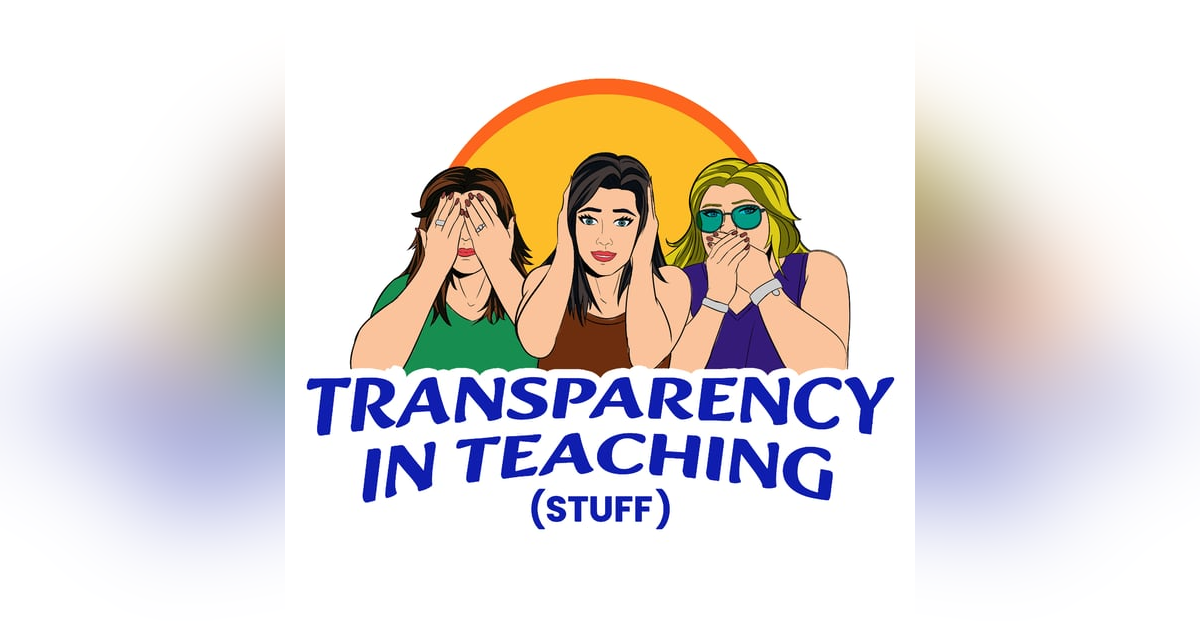The Teacher Workload: Teachers Get Less for More

The Teacher Workload: Teachers Get Less for More
In this episode, Anne, Jen, and their special guest Maria delve into the multifaceted nature of the teacher workload, shedding light on the fact that the profession entails much more than simply standing in front of a classroom and delivering the curriculum.
We discuss the term "teachering." Anne found this term in a blog post on teachbetter.com’s site. The curriculum coordinator for 21st Century Teaching and Learning, Alexy Valencic’s discussed the term “teachering” in his post.
[00:06:08] Teacher workload Teaching vs Teachering.
[00:10:57] Duties and responsibilities.
[00:25:57] Compensation for extracurricular activities.
[00:29:27] Teacher overtime and FLSA labor laws.
[00:32:48] Teachers' workload and overtime pay.
[00:36:43] Teachers and overtime restrictions.
[00:46:14] Saying no and setting boundaries.
According to Valencic's definitions, the teaching workload involves identifying what needs to be learned and guiding the learning process until achieving the desired goal. This encompasses state standards, curriculum instruction, teacher-student relationships, assessment, and progress monitoring. On the other hand, the teaching workload also includes “teachering,” made up of all the additional tasks and responsibilities that teachers are asked or expected to undertake, often without any extra compensation.
“Teachering" tasks can range from the many meetings teachers are expected to attend to everyday things like bus and dance duties. Expectations can also include giving up lunch and after-school time for detentions, clubs, professional development, IEP meetings, and parent phone calls. Overall, the episode sheds light on the additional responsibilities and tasks teachers must shoulder beyond their classroom teaching duties.
Did you know that teachers cannot receive overtime payments? We didn’t until we learned about the Fair Labor Standards Act (FLSA). If the word “teacher” is attached to your job description, you are not entitled to overtime, no matter how little money you may make.
New teachers are in the dark about the extent of the teacher workload. While new teachers may anticipate some meetings, the sheer number of meetings they must attend may surprise them. Teacher education programs fail to prepare teachers for the wide range of responsibilities they will encounter throughout their careers.
To address these challenges, we suggest that teachers engage in discussions to identify and evaluate the value of their extra tasks. By collectively determining which duties are essential and which are unnecessary, teachers can advocate for changes and potentially alleviate or reduce the burden of the teacher's workload on specific responsibilities.
Additionally, we emphasize the importance of supporting new teachers and ensuring they can handle these additional duties. Experienced teachers must demonstrate to new teachers that it is acceptable to decline certain tasks, ultimately promoting a healthier work-life balance for educators.
This episode underscores the reality that teachers must often go beyond their primary teaching role and assume additional responsibilities. We emphasize the need for awareness, support, and advocacy to address the challenges associated with these extra tasks and to ensure fair compensation for teachers’ efforts.
Summertime is the perfect time to start coordinating efforts to reform the expectations on a teacher’s time. Now is the time to get the conversation about all the unnecessary “teachering” at your school. Do this before the beginning of a new school year overwhelms your attention and you find out you’ve been signed up for more than you’ve bargained for!
Thanks for listening!
For a list of all the resources used to make this episode, visit https://transparencyinteaching.com/
How do you handle the workload at your school? Should teachers be entitled to overtime? Leave us your comments and suggestions.






